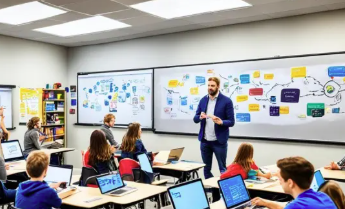Personalized learning isn’t just for children and teens—it’s an essential strategy for adult learners as well. Adults return to education with a range of backgrounds, goals, and learning preferences. Whether they’re advancing in a career, learning a new skill, or completing a degree, personalized learning helps meet adults where they are and supports their progress in meaningful, flexible ways.
Why Personalized Learning Works for Adults
Adult learners often balance education with responsibilities like work, family, and community commitments. Personalized learning offers the adaptability they need by allowing them to:
- Set individual goals that reflect their career or personal aspirations.
- Learn at their own pace and on their own schedule.
- Access content through formats that suit their learning style, such as videos, readings, or interactive tools.
Key Features of Personalized Learning for Adults
- Flexible Scheduling: Online platforms, asynchronous courses, and hybrid models allow adults to learn on their own time.
- Career-Relevant Content: Programs often align learning with real-world job skills and industry certifications.
- Self-Directed Learning: Adults take initiative in managing their own learning plans, supported by advisors or mentors.
- Immediate Application: Many adults apply new knowledge directly to their jobs or personal lives, making learning more practical and rewarding.
Strategies for Educators and Institutions
- Conduct Learner Assessments: Understand each learner’s goals, strengths, and challenges before designing a learning path.
- Offer Choice and Voice: Let learners choose topics, assignments, or tools that reflect their interests and needs.
- Use Technology Wisely: Leverage user-friendly platforms and apps that offer personalized recommendations and feedback.
- Support with Coaching: Provide access to mentors or facilitators who can help guide progress and adjust learning plans.
Real-World Examples
- A working parent enrolls in an online certification course with flexible deadlines, completing modules in the evenings.
- An adult learner explores a new language using an app that adjusts difficulty based on performance.
- A professional attends workshops that connect with their job responsibilities, building both confidence and competence.
Conclusion
Personalized learning empowers adult learners to reach their goals with flexibility, relevance, and support. By honoring their unique life experiences and learning preferences, educators and programs can help adults grow personally and professionally in ways that fit their lives. It’s a learner-centered approach that benefits individuals, workplaces, and communities alike.













